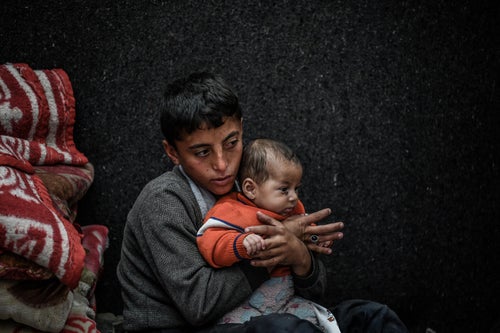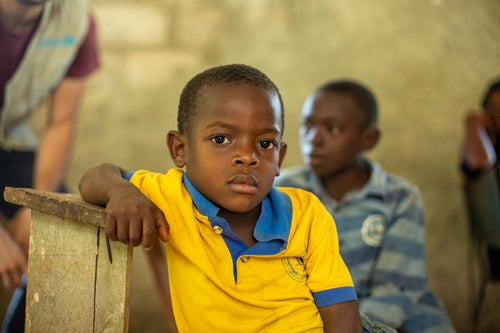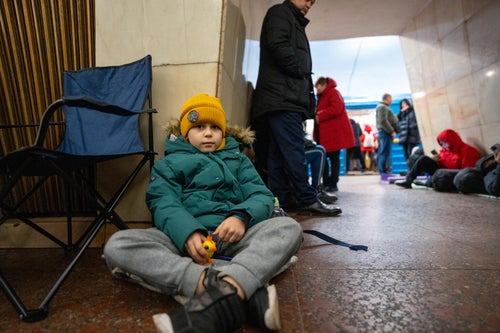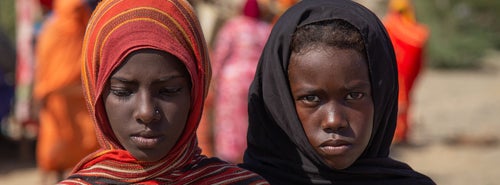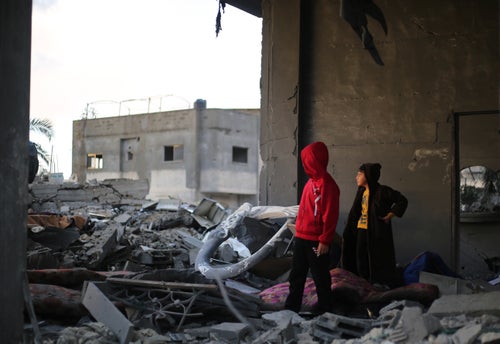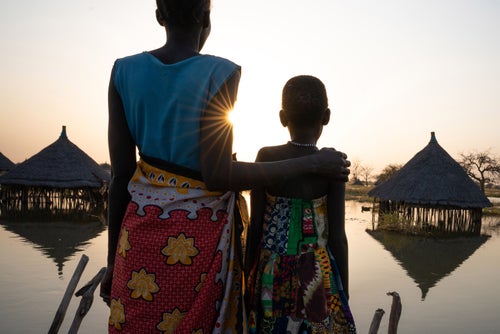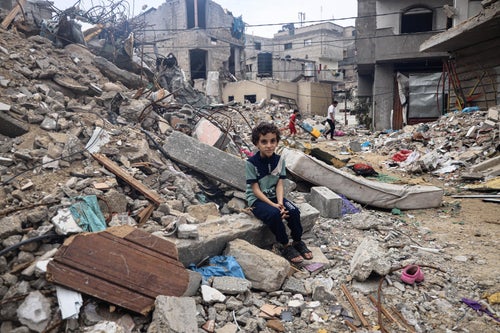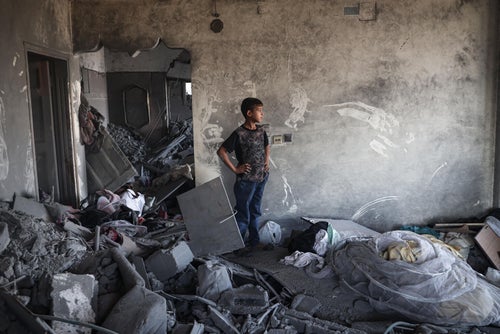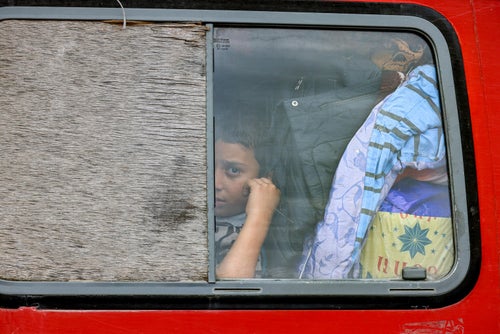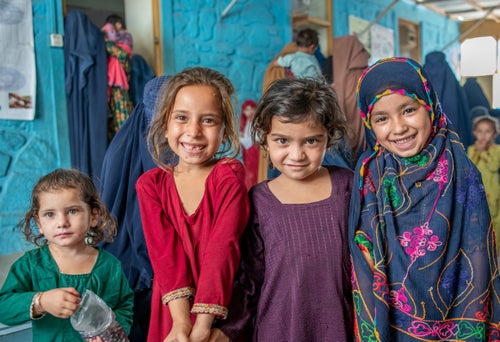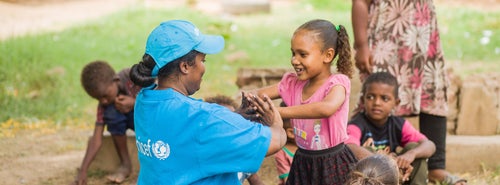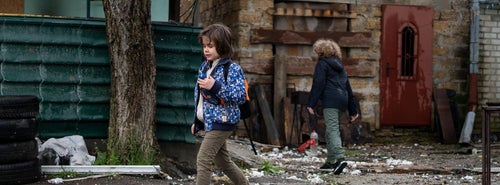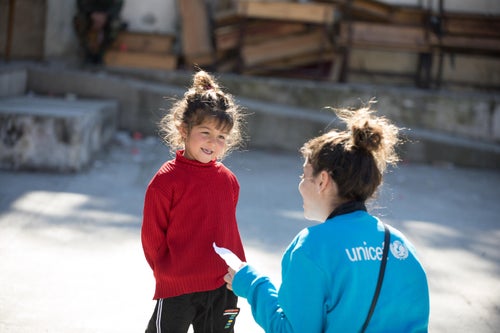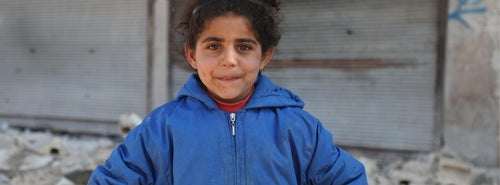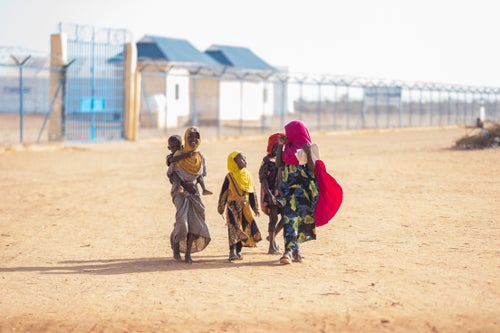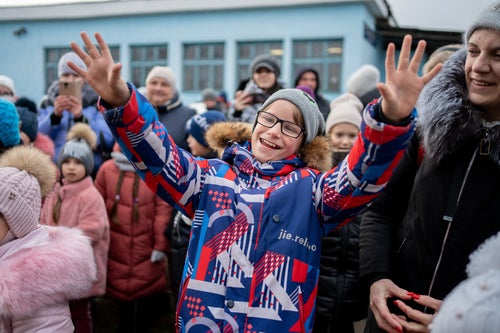We’re on the ground, working to reach children and their families with lifesaving support while helping communities recover.
When war breaks out and disaster strikes, the chaos and insecurity that follows leaves children and their families at high risk. They lose their home, school and often loved ones. Their access to food, water and health care is affected, and many children are left vulnerable to abuse and exploitation.
With the sheer scale of our infrastructure and long-term development work around the world, UNICEF can act quickly, delivering lifesaving help to children in as little as 48 hours. When food is scarce in Gaza, Sudan and across the Horn of Africa, we provide children with nutrition and health care. When schools are destroyed in Ukraine and Syria, we set up temporary learning spaces. In the Pacific, we deliver vaccines to stop preventable diseases that can thrive in the aftermath of disasters.
These are just some of the ways UNICEF responds to help children and families impacted by emergencies.
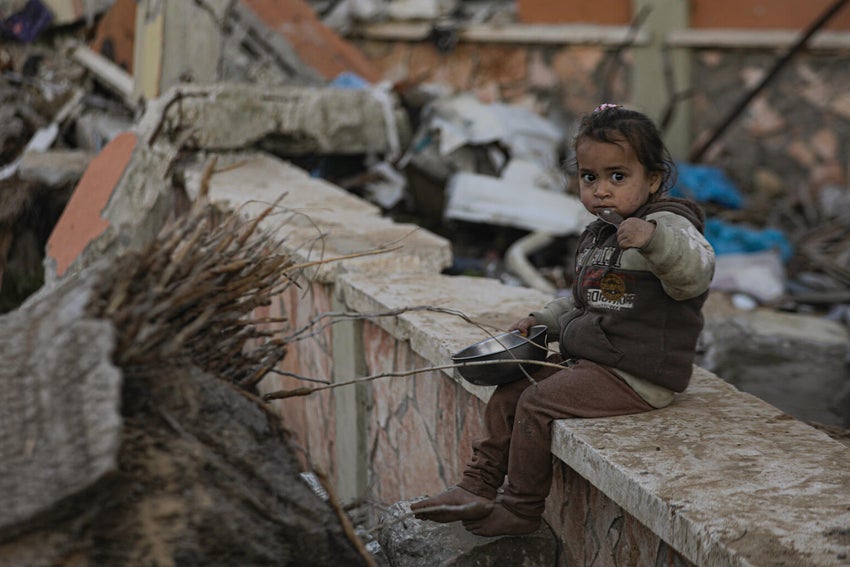
Gaza Crisis
Since the violence escalated in October 2023, every child in the Gaza Strip has been exposed to deeply distressing events and trauma marked by widespread destruction, relentless attacks, displacement, and severe shortages of essential necessities such as food, water, and medicine.
Deprived of essential food and clean water, 1 in 5 people in Gaza are facing starvation, while the entire population is facing high levels of acute food insecurities. Over 1.9 million people have become internally displaced, around half of them children, and many have sought refuge in overcrowded shelters with extremely limited access to water, sanitation and hygiene – conditions that are especially dangerous for young children.
Access is difficult and limited, but our teams won’t give up trying to get lifesaving supplies and services to children. By donating today, you can help us be there for children and families in desperate need.
Learn more about some of the biggest global challenges
From global health crises to man-made disasters, our explainers help you to learn more about unfolding emergencies that are impacting already vulnerable communities.
How UNICEF responds to emergencies before, during and after they happen.
UNICEF responds to hundreds of emergencies every year, in our region and around the world. When disaster strikes, our teams act quickly to deliver clean, safe water and essential medical supplies to prevent malnutrition and illness. We help new mothers give birth safely, and we provide lifesaving vaccines to protect children from deadly disease outbreaks.
Helping communities recover also means creating safe spaces for children so that they can continue to learn and play, provide innovative tents for children and families to shelter in, and provide psychosocial support to help children process and cope with their changing world.
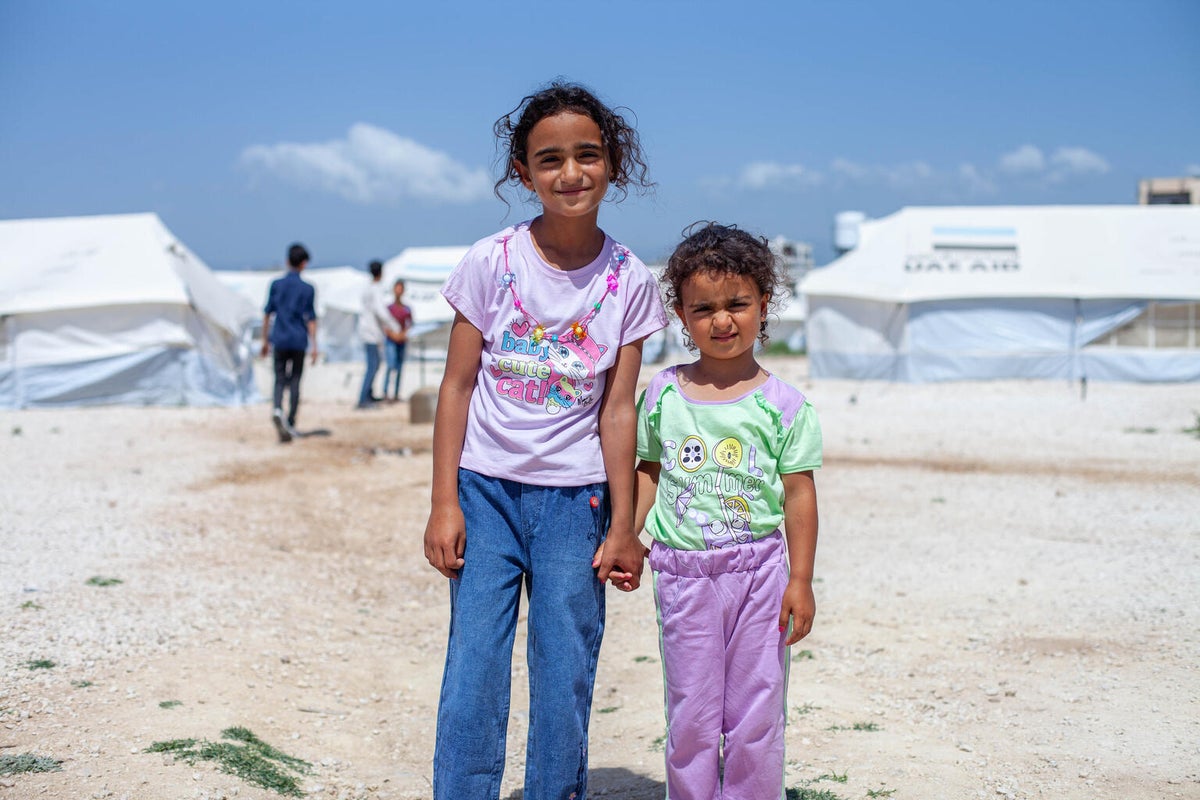
Always there in emergencies
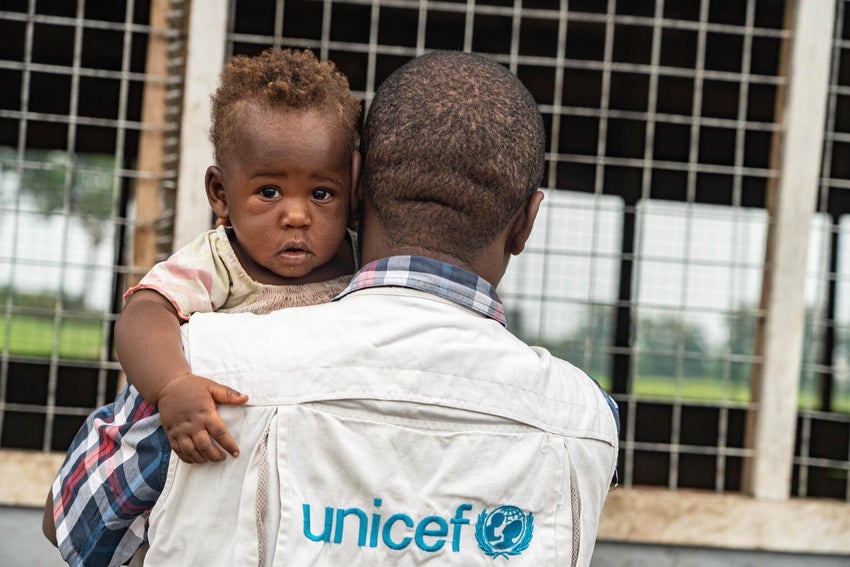
UNICEF’s humanitarian role during conflict
UNICEF is always there, working to uphold the rights of all children affected by conflict and humanitarian crises, no matter who they are, where they live or what they believe. We stay and deliver before, during and after an emergency.
As conflicts continue to unfold around the world, we answer some of the big questions about UNICEF’s humanitarian role during conflict and war and how we protect, advocate and deliver lifesaving support for children and families caught in these crises.
Help children in emergencies
Every second, we’re racing to reach children in emergencies with lifesaving care. We can only be there with your help.
Our recent work in emergencies around the world.
We are always there for children before, during and after an emergency.



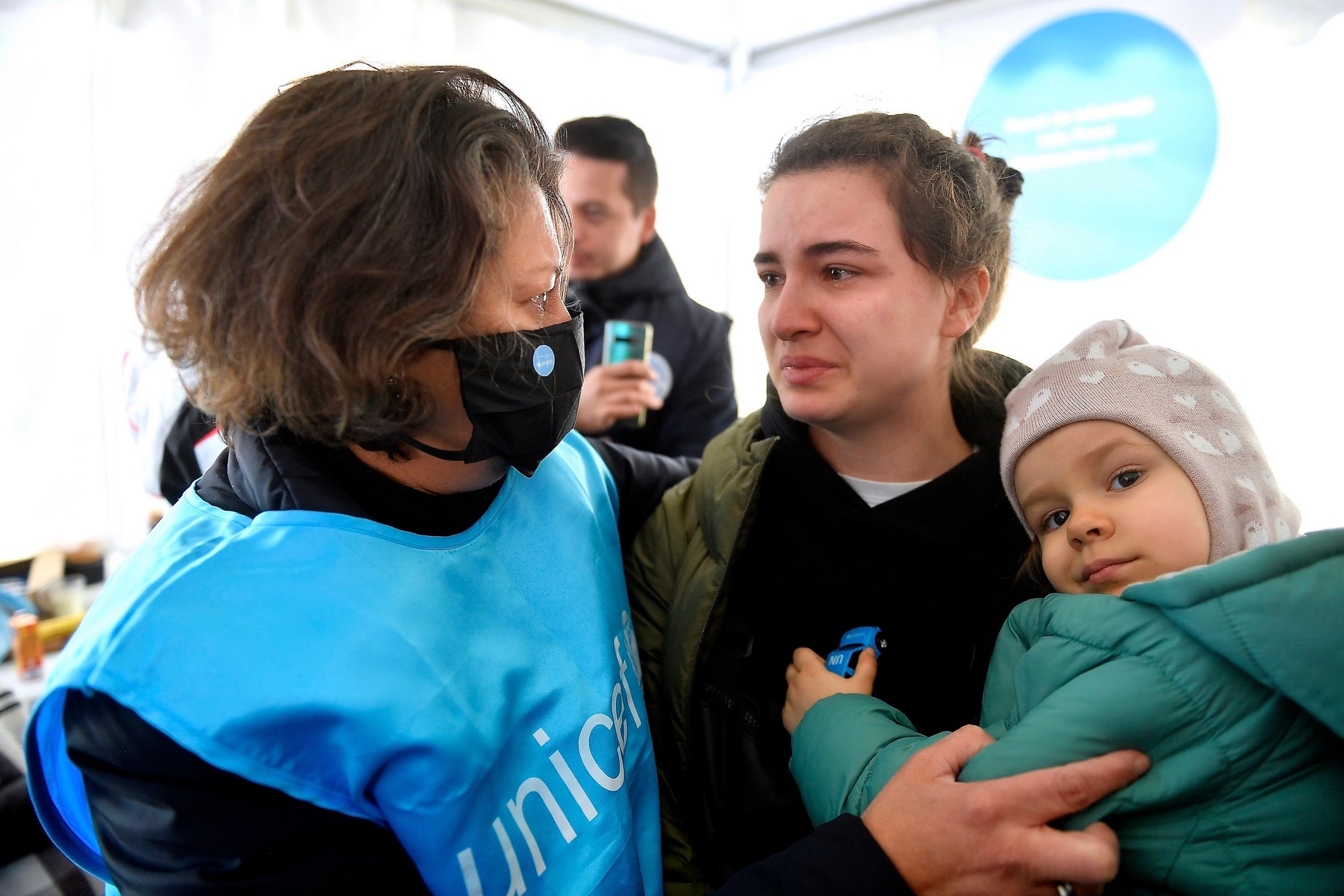
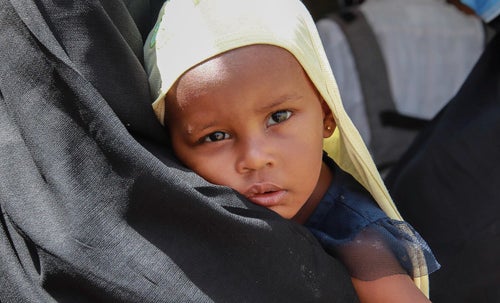





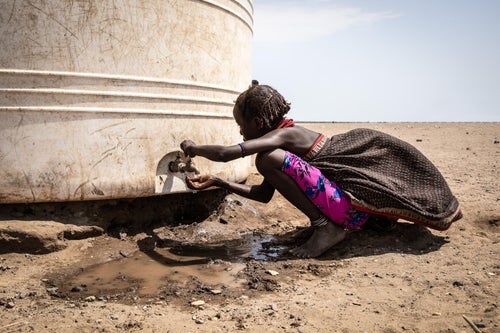



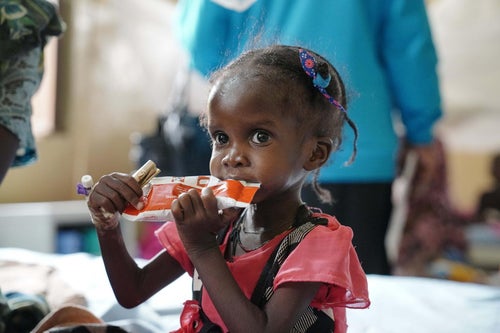


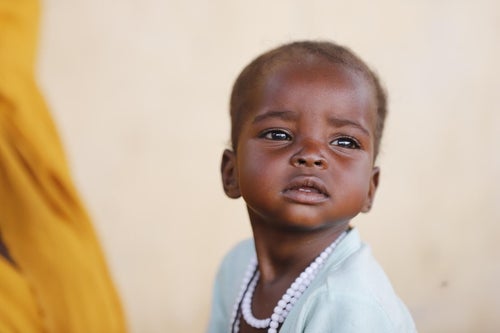

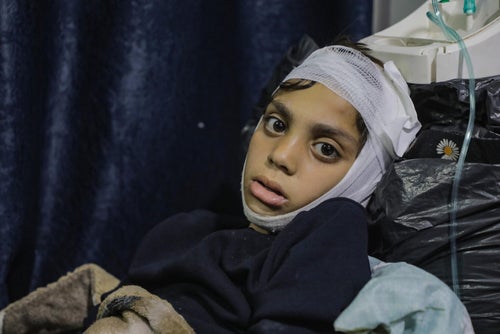







![With his family, Syrian refugee Shadi [NAME CHANGED], 9, has lived with a host family for nine months, in North Lebanon.](https://assets-us-01.kc-usercontent.com:443/99f113b4-e5f7-00d2-23c0-c83ca2e4cfa2/01664d5f-21f4-49bf-9a09-2d56b3fe8d7b/UNI638343.jpg?w=500&fm=jpg&auto=format)







